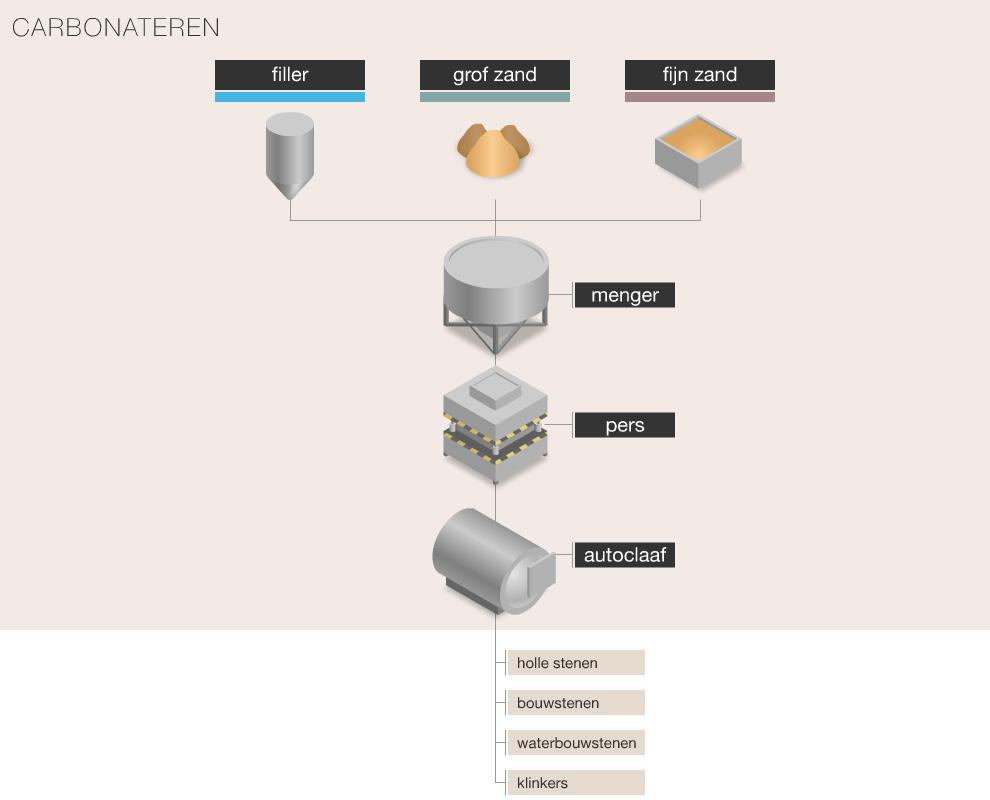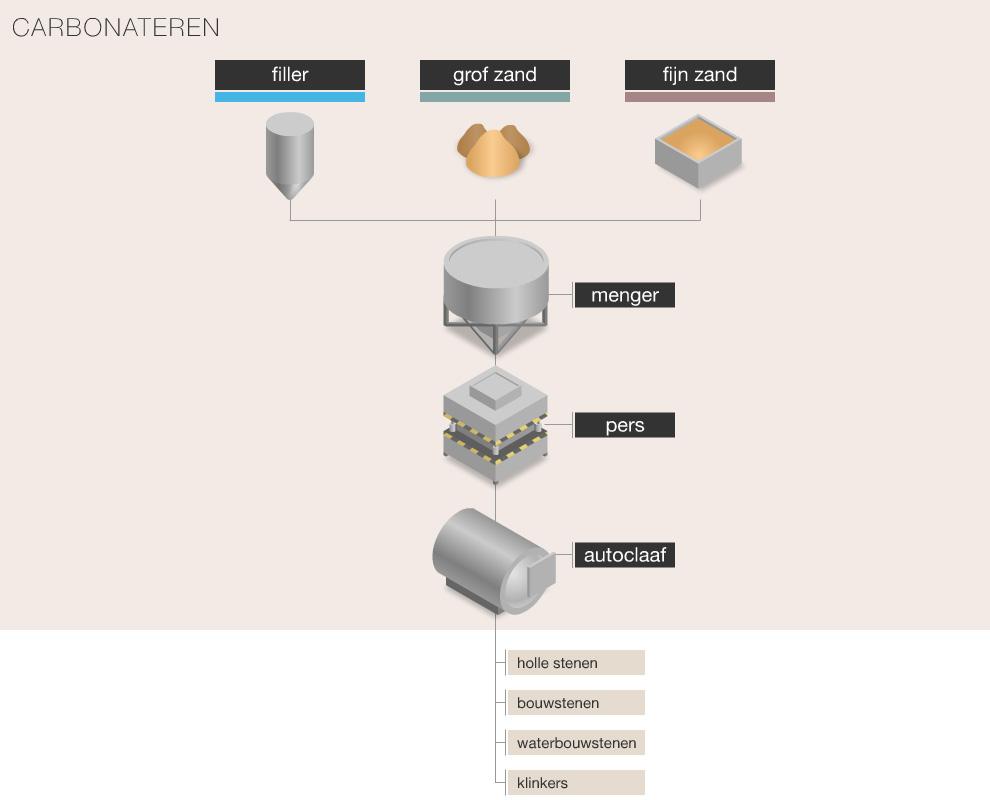Carbonation technology
Carbonation is the natural process in which calcium hydroxide reacts with carbon dioxide and is transformed into calcium carbonate. Calcium carbonate is found in the substrate all over the world, and is an important natural resource for CO2 storage. It is better known as limestone and is widely used in the construction industry. The Romans used to heat limestone to remove CO2 and to obtain quick lime, after which they could use it as mortar when combined with water; the strength of the joint was ensured through cement reactions and the carbonation process. There has been renewed interest in carbonation in recent times, primarily in an industrial environment, due to the demand for sustainable CO2 storage.
Apart from CO2, a source of calcium oxide is also required, and in this case, this is slag. Slag is a by-product of steel production and it has for years been recycled to recover metal and valuable road metal. Recmix Belgium BVBA, the parent company of Carbstone Innovation NV has a prominent role to play in this connection. The remaining fine fraction had, until recently, no industrial use.
Carbstone Innovation NV developed a patented process to convert the fine residual product from the slag generated during slag production, into high value construction materials by adding carbon dioxide. This is done without adding expensive binders such as cement, which makes possible considerable cost savings.
This revolutionary procedure has a number of environmental advantages in the treatment of EAF and BOF slags:
- production of high value construction materials
- unique permanent storage of substantial quantities of CO2
- addition of cement can be avoided
- final stabilisation of alloy metals in slags; reuse of all fractions of the slag
This technology is patented. Carbstone Innovation NV can help third parties use carbonation technology in their process to add value to their slag, and also to capture the CO2 arising from the kilns. The Carbstone process offers a considerable added value in view of the more stringent environmental standards and the zero waste policy that governments in the EU are striving to achieve, as well as the projected rise in CO2 emission rights.


